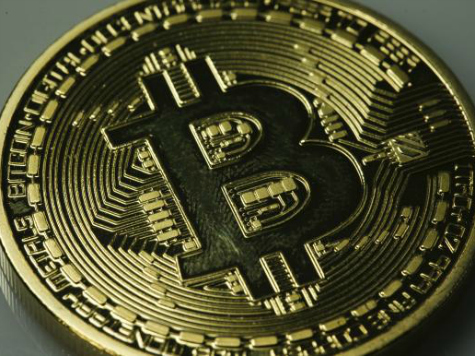
Last week the IRS announced that Bitcoin is not a currency and is, instead, property. This has effectively turned tens of thousands of Americans into tax cheats and endangered the adoption of Bitcoin by wider audiences – even more so than the Mt. Gox fiasco from nearly two months ago.
The power to tax is the power to destroy. The very future of this grand experiment may have met its greatest threat to-date: the U.S. tax code. These new IRS rules were not settled in a legislature but were established by bureaucratic decree. The official “Virtual Currency Guidance” paper redefines the word “currency” in a way that would make the characters in George Orwell’s 1984 proud.
Welcome to tax purgatory, Bitcoin holders. For many, unfortunately, it will soon result in legal hell. Bitcoin and all crypto-currencies are now not only officially property, but the new rules and penalties are being applied retroactively! The U.S. taxpayer must now possess some form of advanced mind-reading abilities to ever hope to comply with our tax code, since the tax code can now apparently be back-dated to any point in time.
Get ready to pay capital gains and be buried under mountains of red tape. Early adopters and frequent users are going to be subject to a non-forgiving tax code that requires you to prove your innocence to any accusations. Imagine buying a cup of coffee or ordering something online; this law now demands you fill out a proper Schedule D disclosure with every transaction. Can anyone say “audit”?
This little maneuver should not come as a surprise to anyone. For months the tension has been building as more and more companies have adopted Bitcoin and loosened the stranglehold credit card companies have had over the merchant processing industry. The merchant processing industry, with operating margins often over 50%, stood to lose possibly millions of dollars in their excessive fees as Bitcoin grew in popularity. Even former Fed chairman Ben Bernanke commented to Congress that crypto-currencies “may hold long-term promise, particularly if the innovations promote a faster, more secure, and more efficient payment system.” This is not something that firms like Visa and MasterCard want to hear.
Proportionally, the biggest threat to crypto-currencies was always the long hand (or strong hand) of the government. Any way of transacting an exchange of goods and services that is not under the control of the government, one that goes so far as to fine children for running lemonade stands, is a threat, and it cannot have its citizens just opting out.
The draconian move of changing the actual definition of what a currency is or is not is what most Bitcoin users find so reprehensible. Just as recent gun laws have outlawed or reclassified once legal items, the “New Speak” world has a habit of changing definitions of words rather than changing the laws to fit the definitions.
The constant threat of reclassification is nothing more than the circumvention of the legislative process. This is a function that should have applied to all crypto-currencies so that all points of view were thoroughly debated before the implementation of a new tax policy. But why let this process play itself out properly when an individual can always address his grievances in the court of law? There is nothing like going into a court as an individual to question the state, with its almost limitless access to financial resources. How many times has the government admitted it was wrong and corrected its errors? I’m still trying to think of one.
Many investors today are legitimately concerned about the real dangers of debasement in a world of unsustainable deficits. With Bitcoin now compromised, gold and silver, which have traditionally been viewed as ways to opt out of the central bank manipulations in the past, may also be at risk. As we have seen from this recent IRS attack on Bitcoin, people who are “stacking” are just as vulnerable to a similar overnight surprise. Uncle Sam can act very quickly and decisively when he wants to, especially when tax revenues are on the line.

COMMENTS
Please let us know if you're having issues with commenting.